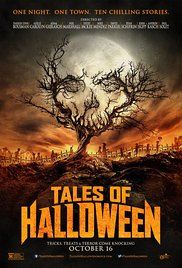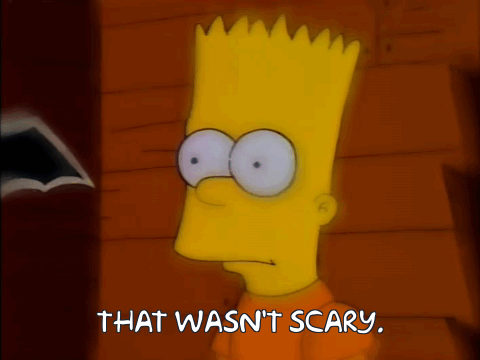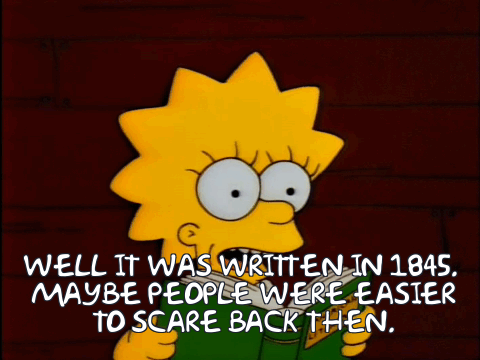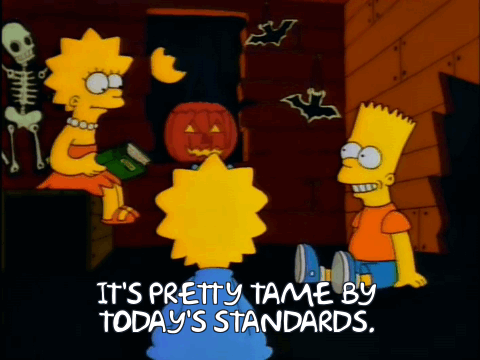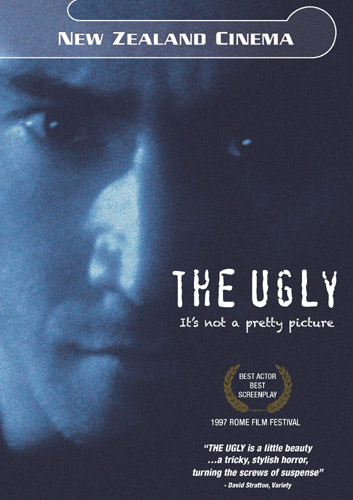October 4
You've seen this setup before: the killer, sitting or standing alone in a room, refusing to talk to anyone until the arrival of a talented but flawed analyst, trying to figure out what made the person into the monster, all the while with the killer playing the long game for what could only be horrifying results. That was indeed a common sight in serial killer films throughout the 90s, and
The Ugly doesn't operate that far away from the well-worn path, seeing fit to include the kinds of cliches that always worm their way into these stories. And while the film doesn't quite transcend past the familiarity due to some unforced errors of its own, it is a film that does at least prove that what it's about isn't necessarily as important as how it's about it.
In this film's case, the best thing going for it is the visual style of how our killer, Simon, tells his story. More precisely, how writer/director Scott Walker is able to depict the flashbacks and interview tactics that Karen employs as we peer into Simon's fractured and frayed mind. Here, events don't follow an entirely linear path, as Simon's recollection of his life before and after the emergence of his alternate persona, the title character, charts a jagged course as his later murders give way into his difficult childhood, only to whip wildly but effectively back into a different time period all together. This leads to some highly effective transition work, including a rather striking edit from one foot chase that stands to bring Simon some kind of happiness, right into one where he's older and ready to strike again at his next victim. The inserts of both present day Simon and Karen into the proceedings was also an inspired touch, as it helps remind us of the interview format without having to go out of its way to be too talky: for a setup so well known for being overly expository, the "show, don't tell" method here is not only refreshing, but very satisfying to watch unfold. Another bold tactic is employed with the violence, as the usual red blood is replaced with black, putting us into a deep and dark portion of Simon's mind that this is his coping mechanism that makes it easier for him to be able to commit the crimes that he does, effectively dulling the violence for him, even as it doesn't work quite the same way for the viewer.
It is certainly a stylish film from beginning to end, and while it works wonders for the central interview, one gets the sense that Walker may have gone a bit too far in a couple of other places that take you right out of it. Namely, the facility and its inhabitants that Simon resides in and with struck me as being too unrealistic and honestly rather silly, particularly the orderlies that feel like they came out of thrash metal music video and a head doctor played by Roy Ward who really plays up his weirdness too much to register as anything other than annoying. The facility also comes across as more of an art director's idea of what a mental ward should look like rather than an actual mental ward, with strange touches throughout like a glass office and a viewing theater complete with actual movie theater chairs and refreshments (no joke!) that stick out from the relatively simpler reality of Simon's life.
Adhering to a few too many cliches, the film goes into an expected finale that does that really annoying thing of giving the killer pure omnipotence to set up the tragic conclusion, which I can't in good conscience call a remotely desirable outcome. Here also, the movie gets more murky than ambiguous, leading to a frustration that we wind up somewhere back around square one with our understanding of what Simon actually is by the end of the film. It's not cheating, per se; more that it feels like the story got away from the filmmakers in the service of producing striking imagery that came at the tale's expense. I think the cloudiness along with the fussy surrounding elements does a disservice to the strong performances from both Paolo Rotondo and Rebecca Hobbs, as well as the central visual conceit for how Simon's story is depicted, as the film is easily recommendable on those qualities alone. As it is, we're looking at a flawed film that gets so close to being a true breakout that it kinda pisses you off a little bit that it isn't when it was so close to that finishing line. There's a lot to like here, but I really do wish that it didn't have an equal amount of unwanted elements to go along with them.
Film for Oct 5: Gonna play it a little by ear today, as I'm due for an appointment with a podiatrist that should (hopefully) do something about my toe, but I'll watch something for sure.







